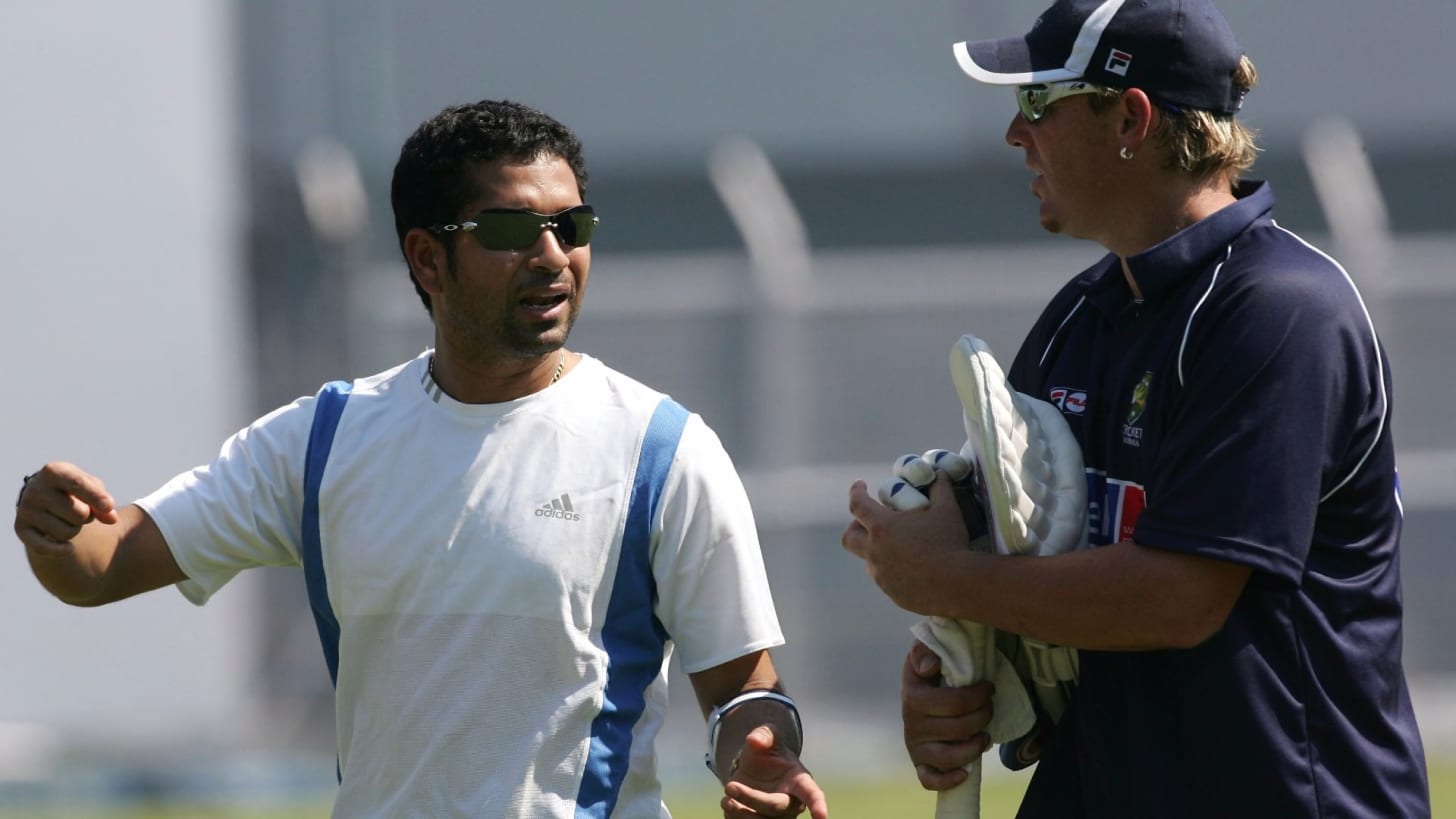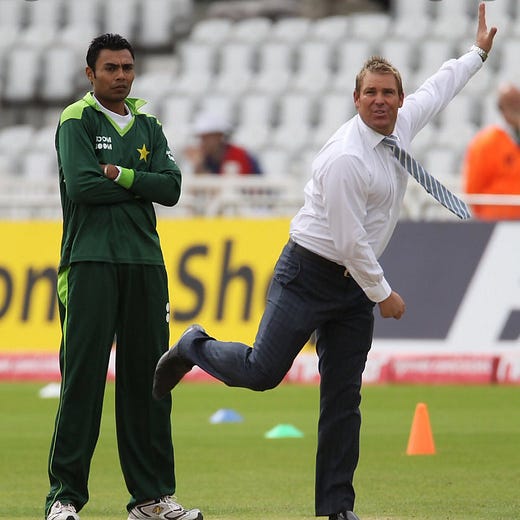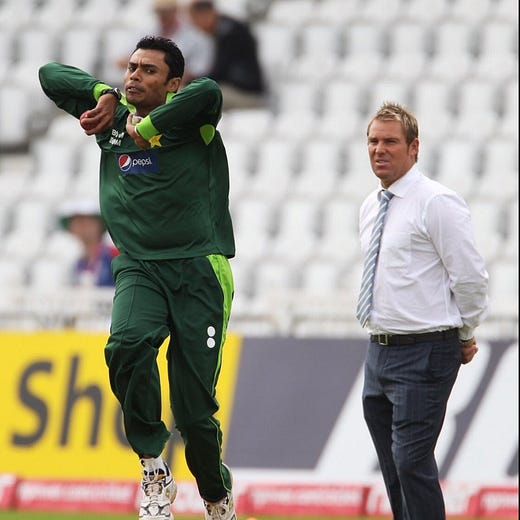We could all learn a lot from Shane Warne
His legacy never asked us for anything, just to enjoy it

There have been many things said about Shane Warne, the true enormity of his figure revealed in the global outpouring of sadness at the loss of someone that was truly remarkable on many levels. The greatest champions have a human honesty that separates them from the other greats on the cold and often lonely journey for excellence. Shane Warne stood out for all these qualities, and for them, became so much more.
Glory, power and fame are seen as career paths these days, people now prepare and yearn for it and sometimes the dedicated and determined can often lose their humanity in their pursuits, and more importantly the joy and passion they once had for the thing they love. We see it in the rich and powerful, politicians and public figures and often and more often our sporting icons. It is rare to achieve greatness being unhindered and authentic, many dare not try, and that is what makes Shane Warne special, that’s what makes him one of the definitive figures in our modern history and a rare and valuable commodity to our nation.
There are some art forms that become lost to history, symphonies that cannot be played as they were written, forgotten among other things in the ebb and flow of time and history. Shane Warne brought the lost magic of leg spin back from the dead like a pomegranate seed from the underworld.
I was ten years old in 1993 when Warne took our captive imagination by storm and took the ball of the century at Old Trafford. Somewhere between Peter Daicos andGarry Abblett, in no particular order, Warnie was one of the first sporting posters on my wall as a kid. This young bleached haired fella with an ear piercing, smiling like he knew something that we didn’t, doing something the world had never seen before, drawing us all into his orbit.
Shane Warne took cricket to a whole generation around the planet with something akin to a dark-art or a Jedi power, and we all felt it was special, even if we truly didn’t understand the genius of it all and the total dedication and passion it required.
I remember the kids at school getting the gold earring, the bleached tips, endless poorly formed imitation leggies with half taped tennis balls in the street cricket around the neighbourhoods of north suburban Melbourne. He was a Victorian, and we knew he was a living legend, and he didn’t just do it for himself, he did it for us, and we knew that too. Right from the start he was great.
On the field, Ian Healy recently told an Indian cricket publication “He was a cricketing genius with working-class desperation to win”. It was this intelligence and humble grounding that set him apart. He was someone who was aware of his existential moorings and able to accept who he was, once a beautiful and celebrated by-product of success, fairness and opportunity felt in lower-middle Australia. Warnie provided a light to many from all classes, castes and colours, across the exotic seas of the cricketing world, where the sun never sets, a world where people come together to breathe its air with so much mutual admiration and love.
Although this man was universally adored for his godlike skill, the thing that truly made Shane Warne remarkable was the essence of his character. In a world of fakes and corporate sociopaths, where they write books on how to win friends and influence people, Warne was a true genuine person who’s lived experience shaped by his humble upbringing -- this allowed him to have an understanding and a nuance of the world around him. This awareness allowed him to appreciate his success and privilege, to see the value in helping and sharing it with others, and more importantly, to feel genuine joy when doing it.
Many working-class families in the working suburbs of Melbourne’s North could never afford trips overseas back in the days where Ansett was dropping $2500 return flights to Fiji, so we all took trips in the households of our multicultural community and saw the world through the eyes of the Australian cricket team on the radio and the television. Shane Keith Warne was equivalent at the time to one-and-a-half Bob Hawkes, a Whitlam, a Gareth Evans and a Michael Hutchence worth of foreign diplomacy and star power. Perhaps our greatest international ambassador and cultural icon.
This was the Warnie I loved, the person who took me with his team around the world and introduced me to Pakistan, the summer of Kaluwitharana, the Mahabharata and Brian Lara, the man who won a losing ashes in 2005, the hero who soundly dispatched the greatest cricketers of two generations and stuck around after the game to establish lifelong friendships with them. He had a profound significance as role model for young males from all backgrounds, an honest composition of endeavour and betterment and trial and error, and more importantly an example for the working class and the unique and beautiful traits they possess, people he genuinely loved, and he was adored across the world in return for it.
One image that stood out to me in the weeks since his sudden death, is a picture of Warne and Danish Kaneria at Trent Bridge on day 4 before a Pakistan v England test match. Two Jedis, talking their own language, focusing on their art form as if the rest of the world doesn’t exist. Warne gave his time to so many like this. Danish Kaneria loves Warnie, as does Yasir Shah and the leg spinner cult around the world, so do the Sri Lankans, the West Indians, the Queen of England and Ed Sheeran, the Sikhs and Muslims and Rastas and Hindus and the billions of people that adore the most popular summer sport in the world.
Warne leaves behind a pathway for us all, a memory of how one can live in this world, and the value of a good legacy that will endure forever. He showed the bogans how to walk tall and the toffs how to lighten up, everyone was willing to meet in the middle for Shane Warne, like the good bits in the religions or the cultural similarities between faraway nations. He taught us how to be honest to ourselves when so many people in business, politics, press, influence, and sport pretend to be someone else at the expense of who they are, to the disappointment of the people that look to them for genuine inspiration.
So, we gave him a pharaohs funeral at our biggest church, then we named it after him, and not many people would knock it. A funeral as big as Lenin’s, for a legacy that never asked for anything, just to enjoy it. And we did.






Great article Joel! Brought me back to the old days of the tapped tennis ball and attempting the Leg spin Wrong-un